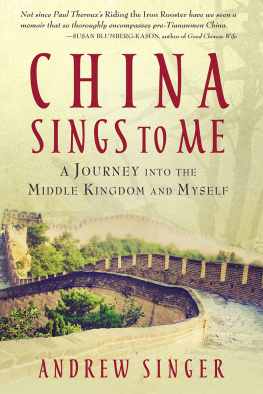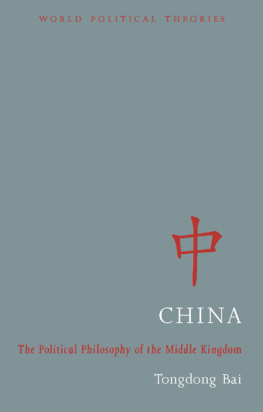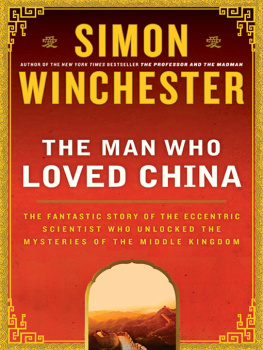Felton - China Station: The British Militry in the Middle Kingdom, 1839–1997
Here you can read online Felton - China Station: The British Militry in the Middle Kingdom, 1839–1997 full text of the book (entire story) in english for free. Download pdf and epub, get meaning, cover and reviews about this ebook. year: 2013, publisher: Pen & Sword Books, genre: History. Description of the work, (preface) as well as reviews are available. Best literature library LitArk.com created for fans of good reading and offers a wide selection of genres:
Romance novel
Science fiction
Adventure
Detective
Science
History
Home and family
Prose
Art
Politics
Computer
Non-fiction
Religion
Business
Children
Humor
Choose a favorite category and find really read worthwhile books. Enjoy immersion in the world of imagination, feel the emotions of the characters or learn something new for yourself, make an fascinating discovery.

China Station: The British Militry in the Middle Kingdom, 1839–1997: summary, description and annotation
We offer to read an annotation, description, summary or preface (depends on what the author of the book "China Station: The British Militry in the Middle Kingdom, 1839–1997" wrote himself). If you haven't found the necessary information about the book — write in the comments, we will try to find it.
China Station: The British Militry in the Middle Kingdom, 1839–1997 — read online for free the complete book (whole text) full work
Below is the text of the book, divided by pages. System saving the place of the last page read, allows you to conveniently read the book "China Station: The British Militry in the Middle Kingdom, 1839–1997" online for free, without having to search again every time where you left off. Put a bookmark, and you can go to the page where you finished reading at any time.
Font size:
Interval:
Bookmark:

First published in Great Britain in 2013 by
Pen & Sword Military
an imprint of
Pen & Sword Books Ltd
47 Church Street
Barnsley
South Yorkshire
S70 2AS
Copyright Mark Felton, 2013
HARDBACK ISBN: 978-1-78159-069-0
PDF ISBN: 978-1-47383-076-9
EPUB ISBN: 978-1-47382-960-2
PRC ISBN: 978-1-47383-018-9
The right of Mark Felton to be identified as Author of this Work
has been asserted by him in accordance with the Copyright,
Designs and Patents Act 1988.
A CIP catalogue record for this book is
available from the British Library.
All rights reserved. No part of this book may be reproduced or
transmitted in any form or by any means, electronic or mechanical
including photocopying, recording or by any information storage and
retrieval system, without permission from the Publisher in writing.
Typeset in 11/13pt Palatino by
Concept, Huddersfield, West Yorkshire
Printed and bound in England by
CPI Group (UK) Ltd, Croydon, CRO 4YY
Pen & Sword Books Ltd incorporates the imprints of Pen & Sword
Archaeology, Atlas, Aviation, Battleground, Discovery, Family History,
History, Maritime, Military, Naval, Politics, Railways, Select, Social
History, Transport, True Crime, Claymore Press, Frontline Books,
Leo Cooper, Praetorian Press, Remember When, Seaforth Publishing
and Wharncliffe.
For a complete list of Pen & Sword titles please contact
PEN & SWORD BOOKS LIMITED
47 Church Street, Barnsley, South Yorkshire, S70 2AS, England
E-mail:
Website: www.pen-and-sword.co.uk
To Fang Fang
Contents
Acknowledgements
The author would like to acknowledge the kind assistance of the following organisations and institutions: Custodians of the Zhapu Forts, China; Dr. Nicholas Hall at The Royal Armouries Museum; The British Library, London; The Imperial War Museum, London; The Royal Armouries Museum, Portsmouth; The National Archives (Public Record Office) Kew; The National Army Museum, London; The National Maritime Museum, Greenwich; MaritimeQuest; The Hong Kong Historical Museum, Kowloon; The Shanghai Library; The Museum of Coastal Defence, Hong Kong; Shanghai History Museum, and a special thank you to my wife Fang Fang for kindly acting as an unpaid researcher and translator.
Introduction
One hot and humid summers evening in 2010, I was attending a function at the Seed Cathedral, Britains extraordinary contribution to the Shanghai World Expo. The vast expo site was crowded with hundreds of thousands of people, all enjoying the fascinating exhibits and the air of international friendship and cooperation. A large Union Jack flew proudly above Britains landmark building, itself an award-winning and dazzling profusion of light and colour. The special guests then marched in. To everyones amazement in came the Band of the Royal Marines, immaculately turned out in white tropical service tunics, medals proudly pinned to their chests. It was not lost on me the significance of this event for the first time since 1949, uniformed British soldiers stood under their own flag on Communist Chinese soil. The Royal Marines, probably more than any other British military unit, had played an integral role in Britains military campaigns in China, from the First Opium War in 1839 to the Yangtze Incident in 1949. I wondered as I stood listening to the music whether the other guests realised how significant a moment this was in Anglo-Chinese relations such a thing would have been unthinkable even ten years before. And I wondered how many guests considered the enormous impact that had been made on modern China by not just the Royal Marines, but by the Royal Navy and British Army. Shanghai itself was a product of British military adventurism, and it seemed rather poetic to me that it should have been the Royal Marines, whose unofficial motto is The First to Land, were representing Britain before the Chinese public one last time.
Britains involvement with China is truly epic. We launched huge naval and military campaigns on three occasions during the 19th and early 20th centuries, invaded Tibet, patrolled Chinas rivers for over four decades, fought a glorious last stand battle in Hong Kong, helped China to fight Japanese aggression, and got caught up in the Chinese Civil War. We gave millions of Chinese a fresh start in Hong Kong while defending the territory during the Cold War, and, although not part of this book, we fought the Chinese in set piece battles in Korea. For over 150 years Britain maintained a military presence in China, in both peace and war, and millions of British service personnel passed through our barracks, cantonments and campaigns. The bones of many of these soldiers and sailors lie buried today beneath Chinese soil.
As I listened to the Royal Marines playing God Save the Queen at the Shanghai Expo in 2010, I couldnt help but wonder how it came about that Britain became a military force in China. This book attempts, in a necessarily limited way, to shine a little historical light onto this incredible story that began with an illicit drugs trade in 1839 and ended with the skyscrapers and financial markets of Hong Kong in 1997.
Chapter 1
Foreign Mud
If you will not surrender, we shall be obliged to use warlike measures for obtaining possession .
Commodore Sir James Bremer,
Chusan Islands, China, 1840
The first shots in Britains most infamous conflict, the First Opium War, were not fired by a British warship at the Chinese but somewhat ironically by the Royal Navy warship at a British merchant vessel. On 27 October 1839 a British merchant ship named Royal Saxon attempted to run a Royal Navy blockade into what was then Britains biggest trading post in China, Canton, located nearly a hundred miles up the Pearl River in the south of the country. HMS Volage , a fully rigged frigate, fired a warning shot across Royal Saxon s bows, a shot that was to bring out a large Chinese fleet under orders to protect the British merchantman. That this confused situation even occurred had its roots in a pernicious drug that the British were then in the process of foisting upon the Chinese literally by the ton. The British government, in a move of breathtaking immorality, launched the nation into a war against China to protect ruthless drug traffickers and in so doing ushered in over a hundred years of British military activity in China and dragged China unwillingly from feudalism into the modern world.
The Opium Wars are generally agreed by historians to have been one of the less proud chapters in the history of Britains ascent to world hegemony. For the first and only time in history one nation used narcotics to dominate another, and for good reason today the Opium Wars are remembered in China as a national humiliation. Although morally difficult to justify, Britains success in the First Opium War would eventually lead to China becoming a modern power in her own right, and it can be argued that Chinas prosperity today has its roots in its forcible opening to the world economic system in the 1840s, forced by the sort of gunboat diplomacy that the British used so successfully to usher in the first globalisation of trade and finance.
Although Britains relationship with China had always been firmly rooted in trade and profit, it actually began quite differently. China, a vast underdeveloped empire and the oldest nation-state on earth with its teeming hundreds of millions, and self-satisfied contempt for all things foreign, was about to collide with a grasping, heavily-armed and belligerent nation of free-trading buccaneers busily adding ports and territories to its ever expanding empire with a determination unmatched even by the Romans.
Next pageFont size:
Interval:
Bookmark:
Similar books «China Station: The British Militry in the Middle Kingdom, 1839–1997»
Look at similar books to China Station: The British Militry in the Middle Kingdom, 1839–1997. We have selected literature similar in name and meaning in the hope of providing readers with more options to find new, interesting, not yet read works.
Discussion, reviews of the book China Station: The British Militry in the Middle Kingdom, 1839–1997 and just readers' own opinions. Leave your comments, write what you think about the work, its meaning or the main characters. Specify what exactly you liked and what you didn't like, and why you think so.
















